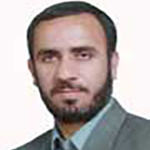Epistemological Foundations of Multicultural Education
Author(s):
Abstract:
This study aimed to investigate the epistemological foundations of multicultural education. Qualitative method of the kind of philosophical research and conceptual analysis was applied. Related books, magazines, and writings included the realm of the research for collecting the information; moreover, accessible published writings and electronic books were used, too, due to the vast numbers of the sources in the field. In order to collect the data, researcher-designed receipts were utilized. By means of content analysis, content interpretation, and theoretical inference, data were analyzed. The research findings indicated that the two major philosophical and fundamental roots of multicultural education were as: Post-modernism and Critical Theory. The research' results, also, suggested that believing in relativism, rejecting any fixed (absolute) truth, believing in local truth based on public observation or methodological principles or scholar's and scientist's researches, rejecting the idea of objective knowledge or objectivity and accepting the theory of mutual understanding, rejecting absolutism and accepting positivistic methodology in the realm of scientific methodology, neglecting the artificial boundaries between the disciplines of human knowledge and supporting the interdisciplinary approach were the epistemological foundations of multicultural education .
Keywords:
Language:
Persian
Published:
Curriculum Planning, Volume:12 Issue: 47, 2016
Pages:
1 to 15
magiran.com/p1541891
دانلود و مطالعه متن این مقاله با یکی از روشهای زیر امکان پذیر است:
اشتراک شخصی
با عضویت و پرداخت آنلاین حق اشتراک یکساله به مبلغ 1,390,000ريال میتوانید 70 عنوان مطلب دانلود کنید!
اشتراک سازمانی
به کتابخانه دانشگاه یا محل کار خود پیشنهاد کنید تا اشتراک سازمانی این پایگاه را برای دسترسی نامحدود همه کاربران به متن مطالب تهیه نمایند!
توجه!
- حق عضویت دریافتی صرف حمایت از نشریات عضو و نگهداری، تکمیل و توسعه مگیران میشود.
- پرداخت حق اشتراک و دانلود مقالات اجازه بازنشر آن در سایر رسانههای چاپی و دیجیتال را به کاربر نمیدهد.
In order to view content subscription is required
Personal subscription
Subscribe magiran.com for 70 € euros via PayPal and download 70 articles during a year.
Organization subscription
Please contact us to subscribe your university or library for unlimited access!


